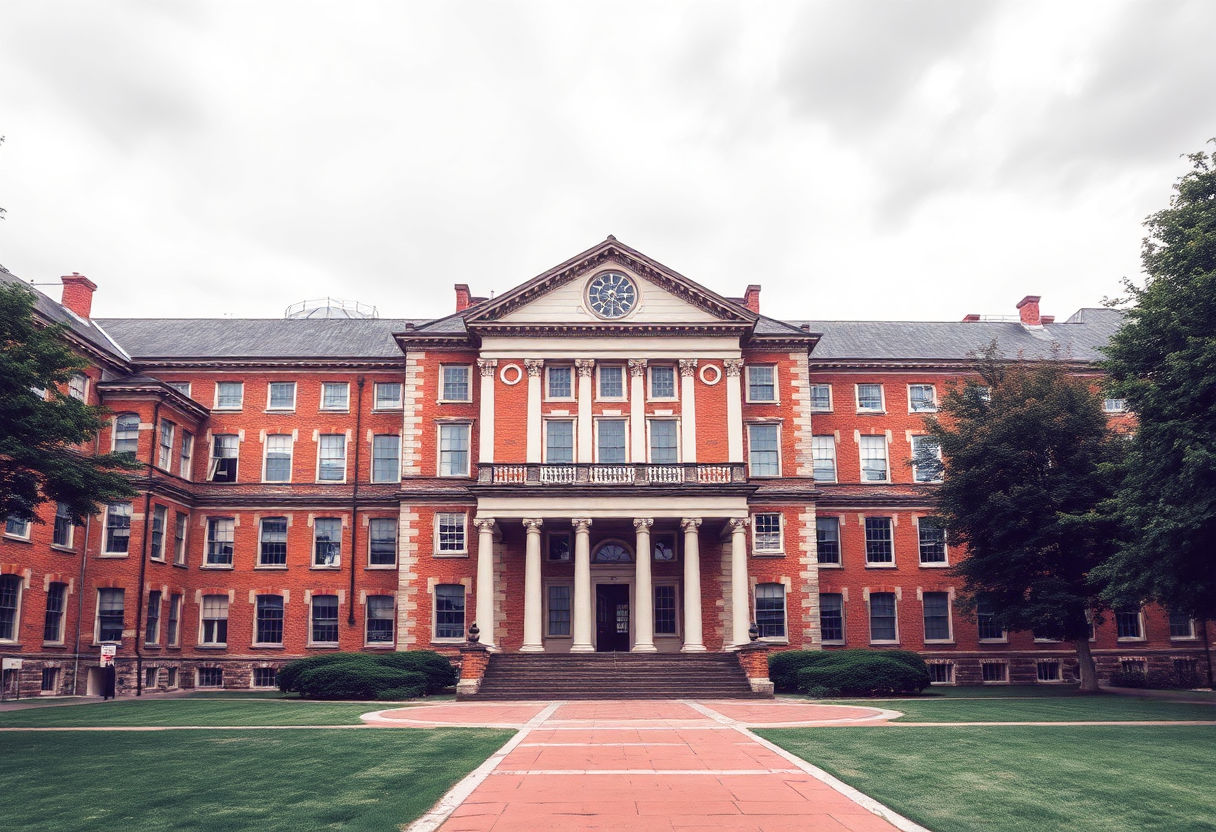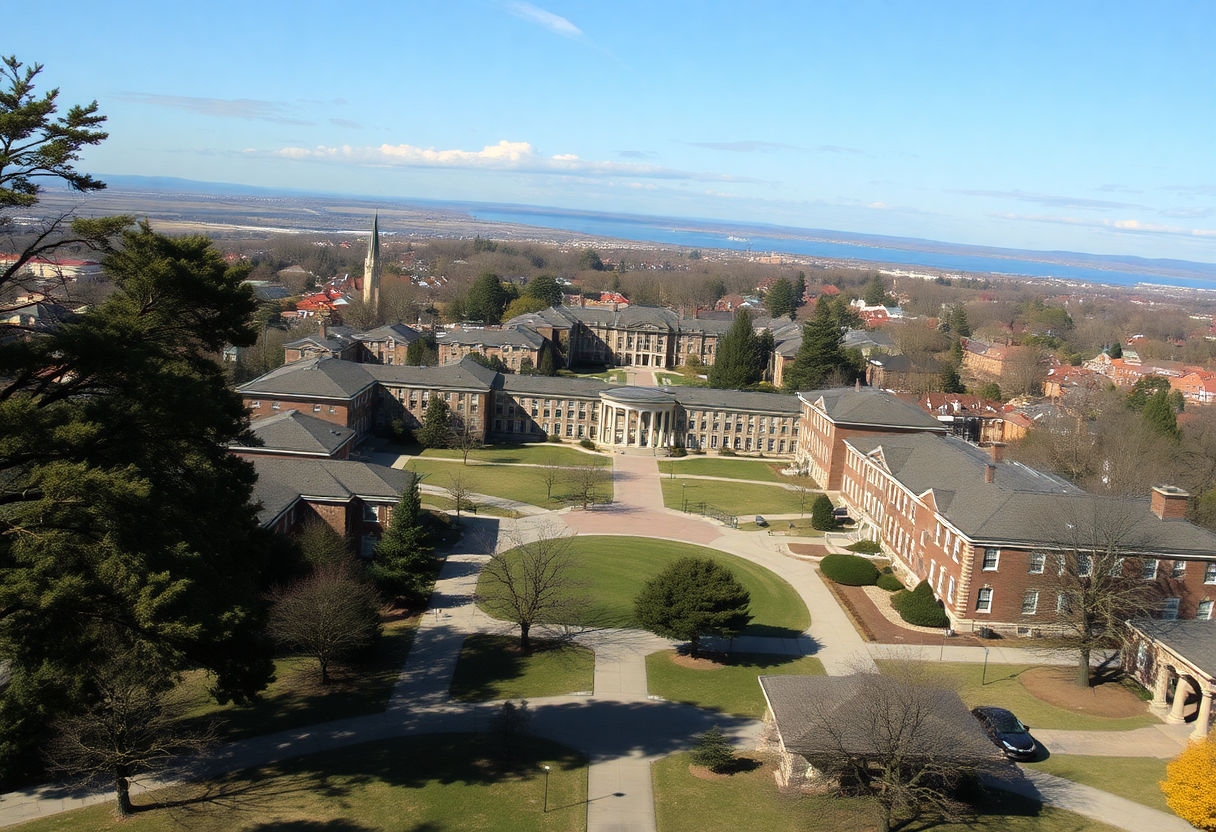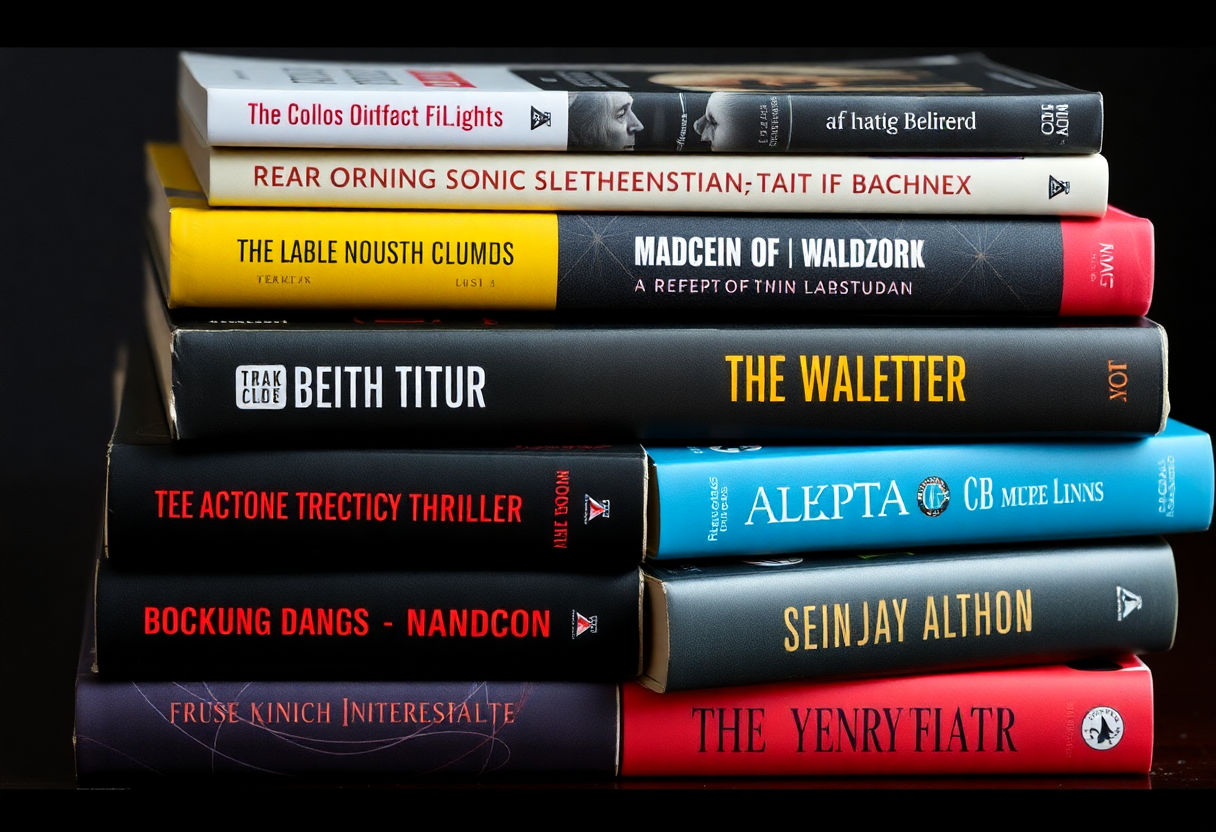In the labyrinth of academia, where intellectual pursuits meet unyielding curiosity, the genre of academic thrillers emerges as a captivating fusion of mystery and scholarly inquiry. This article explores how these thrillers seamlessly weave elements of intellectual rivalry, dark secrets, and scholarly intrigue against the backdrop of formidable academic settings. By unraveling the origins and evolution of this niche genre, we shine a spotlight on notable authors and their significant contributions. Prepare to delve into the top picks and explore the impact of academic thrillers in popular media, as we uncover the secrets that make this genre irresistibly enthralling.
Key Takeaways
- Academic thrillers uniquely blend mystery with scholarly pursuit, creating a captivating niche within literature.
- The genre frequently explores themes of intellectual rivalry and dark secrets, offering a rich tapestry of intrigue.
- Academic settings such as universities greatly enhance the narrative, providing an authentic backdrop for complex plots.
- Renowned authors have significantly shaped this genre, contributing timeless and thought-provoking works.
- The future of academic thrillers looks promising, with emerging trends continuing to captivate modern audiences.
The Origins of Academic Thrillers

Academic thrillers, a captivating subgenre of literature, trace their roots back to the intersection of mystery and academia. This intriguing fusion emerged from the rich tradition of detective stories and the intellectual allure of scholarly settings. Early academic thrillers drew inspiration from classic detective novels, infusing elements of suspense and intellectual challenge within the walls of universities and academic institutions.
The genre gained momentum in the mid-20th century, as readers became increasingly fascinated by stories that combined erudition with suspense. Authors began weaving complex narratives that often mirrored the intense and competitive nature of academic life. This evolution allowed readers to engage with narratives that explored the duality of human ambition and ethical dilemmas within the intellectually charged environment of academia.
One notable factor contributing to the popularity of academic thrillers is their unique ability to blend scholarly pursuits with secrets and conspiracies. Secrets hidden within ancient manuscripts, forgotten diaries, and cryptic codes often serve as the backbone of these stories, creating a tangled web of mystery for characters to unravel. Such narratives cater to readers who relish the intellectual satisfaction derived from unraveling complex plots while simultaneously indulging their curiosity about the often-insular world of academia.
Moreover, the appeal of academic thrillers lies in their depiction of intellectual rivalry and personal ambitions clashing with ethical considerations. Readers are drawn to the genre for its sophisticated storytelling that not only entertains but also provokes thought about the nature of knowledge and power. Over the years, this genre has continued to evolve, embracing contemporary issues and expanding its scope, securing its place as a beloved segment of mystery fiction.
Common Themes in Academic Thrillers
Academic thrillers captivate readers with a blend of suspense and intellectual stimulation. Common themes in this genre often revolve around intellectual rivalry, where scholars are embroiled in fierce competition for recognition, funding, or groundbreaking discoveries. This rivalry can escalate into elaborate mind games and deceit, enriching the narrative with tension and unpredictability.
Another prevalent theme is the unveiling of dark secrets. As protagonists dig through layers of academia, they often stumble upon hidden truths, ranging from historical cover-ups to personal vendettas, which threaten to unravel the fabric of their scholarly pursuit. These secrets serve as catalysts for plot development, driving characters into moral and ethical dilemmas.
Scholarly intrigue is a key component, featuring complex puzzles and mysteries tied to intellectual debates or unsolved phenomena. Whether it’s deciphering ancient manuscripts or unearthing lost scientific theories, the quest for knowledge propels the storyline, appealing to audiences who revel in cerebral challenges.
Many academic thrillers explore the theme of tradition versus innovation. Characters are frequently caught in the struggle between preserving established norms and embracing revolutionary ideas. This conflict underscores the dynamic nature of academia, where progress often collides with conservatism.
Finally, the element of identity and deception plays a critical role, as characters may disguise their true intentions behind the veneer of scholarly respectability. This duality not only enriches character development but also fosters an atmosphere of mistrust and suspense, ensuring that readers remain engrossed as they navigate the labyrinthine world of academic thrillers.
The Role of Academic Settings

Universities and scholarly environments play a pivotal role in shaping the narratives of academic thrillers. These settings provide a backdrop rich with history, tradition, and intellectual rigor, offering an ideal landscape for the cultivation of mystery and intrigue.
One of the essential characteristics of academic settings is their ability to create a sense of enclosed worlds. Within the boundaries of these institutions, a microcosm of society unfolds, where ambitious scholars, secretive researchers, and competitive intellectuals engage in everything from groundbreaking research to underhanded tactics. This insular environment heightens tension and suspense, allowing secrets and rivalries to simmer beneath a veneer of scholarly decorum.
Furthermore, the architectural grandeur and hallowed halls of universities often contribute to an atmosphere of mystery and unease. Their labyrinthine corridors, hidden libraries, and storied traditions can serve as labyrinths where secrets from the past await discovery. Such settings offer writers a physical and metaphorical landscape where characters unravel complex plots and confront the unknown.
Many academic thrillers explore the theme of the dangerous pursuit of forbidden knowledge. The quest for truth, a staple of academic life, often leads protagonists to cross ethical lines, challenging both moral boundaries and personal relationships. Whether dealing with arcane subjects or modern scientific conundrums, the relentless pursuit of scholarly ambition often forms the core of these narratives.
In addition, the faculty and student dynamics within these institutions add layers of intrigue. From the power struggles of tenured faculty to the ambitions of postgraduates, these relationships are fertile ground for conflict and drama, further enriching the stories told within these storied academic backdrops.
Notable Authors of Academic Thrillers

In the realm of academic thrillers, several authors have carved a niche for themselves, captivating readers with tales that blend suspense and scholarly intrigue. Among the most notable voices in this genre is Donna Tartt, whose Pulitzer Prize-winning novel The Secret History is a quintessential example of a mystery rooted in the academic world. Tartt’s narrative weaves a gripping tale of murder and morality within a tight-knit group of students, highlighting the seductive yet perilous allure of intellectual elitism.
Another distinguished author is Dan Brown, celebrated for his globally bestselling series featuring the symbologist Robert Langdon. Brown’s novels, such as The Da Vinci Code and Angels & Demons, masterfully integrate art, history, and science with the pulse-pounding excitement of a thriller. His works not only entertain but also invite readers to ponder complex codes and cryptic puzzles set against backdrops of prestigious institutions.
Tom Wolfe, while primarily known for his social commentary, made a significant contribution to the academic thriller genre with I Am Charlotte Simmons. Exploring the darker aspects of college life, Wolfe unveils the struggles of maintaining identity amidst the corrosive pressures of collegiate culture.
In a distinct yet equally engaging style, Umberto Eco offers readers intricately layered narratives that challenge intellect and imagination. His masterpiece, The Name of the Rose, is a labyrinthine mystery set in a medieval monastery, rich in historical and philosophical detail.
These authors have not only propelled the genre forward with their compelling storytelling but have also highlighted the intricate dynamics of academic life, inviting readers into worlds where knowledge and mystery converge.
Top Picks of Academic Thrillers

-
The Secret History by Donna Tartt
A classic in the realm of academic thrillers, The Secret History delves into the mysterious underbelly of an elite college. The novel explores themes of elitism, friendship, and betrayal, chronicling how a group of ambitious students is drawn into a dark plot of intellectual obsession and murder. The intricate narrative and detailed character development make it a gripping read. -
The Rule of Four by Ian Caldwell and Dustin Thomason
Set at Princeton University, this modern classic revolves around a Renaissance text—the Hypnerotomachia Poliphili—and the young scholars who unravel its secrets. The book masterfully combines historical intrigue with a contemporary twist, offering readers a historical puzzle wrapped in a narrative of friendship and rivalry. -
Dark Academia by M.L. Rio
A novel that perfectly embodies academic thriller elements, Dark Academia immerses readers in the world of theater students who find themselves entangled in a web of deceit and murder. M.L. Rio skillfully juxtaposes classical drama with modern suspense, resulting in a tale that keeps readers on edge. -
The Likeness by Tana French
Known for her ability to weave complex mysteries, Tana French sets this thriller in a picturesque Irish university. The story follows detective Cassie Maddox as she investigates a murder using an undercover identity. The academic setting amplifies themes of identity and psychological depth, typical of French’s evocative storytelling.
These novels exemplify the genre’s allure, drawing readers into worlds where intellectual pursuits are met with sinister undertones. They continue to captivate audiences, reinforcing the academic thriller’s status as a timeless and engaging genre.
Academic Thrillers in Popular Media
In recent years, academic thrillers have transcended literature to captivate audiences through various popular media formats, notably film and television. The unique blend of suspenseful storytelling set against intellectually charged backdrops has translated seamlessly to the screen, offering a visual feast for mystery enthusiasts.
Prominent adaptations that have successfully brought academic thrillers to life include films such as The Da Vinci Code and Angels & Demons, both based on Dan Brown’s best-selling novels. These films delve into cryptic puzzles and historical secrets, drawing viewers into a world where academia and mystery intersect. Their cinematic success is largely attributed to the intricately woven narratives that challenge audiences to think critically, much like their literary counterparts.
Television series have also embraced the academic thriller genre. For instance, the BBC adaptation of Jonathan Strange & Mr Norrell intricately combines historical academia with elements of magical realism, offering a fresh take on the classic thriller. Similarly, The Magicians, inspired by Lev Grossman’s works, merges scholarship and fantasy, exploring dark secrets within an academic setting.
These adaptations not only extend the reach of academic thrillers but also introduce the genre to diverse audiences globally, many of whom may not be traditional readers. By adapting complex narratives into engaging visual formats, films and series amplify the intrigue of academic settings, opening new avenues for storytelling within the genre.
In conclusion, the fusion of academic thrillers with popular media continues to expand the genre’s horizons, enriching the tapestry of storytelling with cerebral intrigue and suspense.
The Future of Academic Thrillers
The academic thriller genre is poised for a remarkable evolution as it navigates the complexities of modern literature. As we progress further into the digital age, the incorporation of technological advances and cyber dilemmas will enrich narratives, allowing authors to explore the intersection between traditional academic conflicts and digital espionage.
Emerging authors are redefining the parameters of the genre by integrating contemporary societal issues such as academic ethics, diversity, and global politics. This shift not only broadens the appeal of academic thrillers but also roots them more firmly in the current cultural and ethical discourse. As academic institutions become increasingly globalized, future thrillers are expected to reflect this interconnectedness, showcasing cross-cultural exchanges and international academic rivalries.
Moreover, advances in psychological and behavioral sciences will likely influence character development. Protagonists in upcoming thrillers are predicted to exhibit nuanced psychological profiles, adding depth and realism to the storyline and inviting readers to engage more fully with the narrative. The potential for sophisticated, multi-layered characters promises to elevate the complexity and engagement in storytelling.
In addition, collaborative projects among authors of different genres might provide fresh perspectives, leading to a fusion of academic thrillers with other literary forms such as sci-fi or fantasy. This innovative blend can attract a more diverse readership, eager for narratives that transcend traditional classification.
As these trends unfold, the genre of academic thrillers is anticipated to continue captivating audiences who are drawn to the intellectual allure of unraveling mysteries within academia’s storied halls.
Conclusion
Academic thrillers continue to captivate readers with their unique blend of suspense and scholarly intrigue. Their persistent allure lies in the exploration of intellectual mysteries within the hallowed halls of academia. With universities serving as both a character and setting, these narratives offer a profound commentary on the pursuit of knowledge and power. As the genre adapts to modern influences, its potential for innovation remains vast. For enthusiasts seeking intellectual stimulation intertwined with gripping storytelling, immersing oneself in these scholarly worlds promises a rewarding venture. Embrace the genre to experience the thrilling interplay of mystery and academia.
Frequently Asked Questions
What are academic thrillers?
Academic thrillers are a subgenre of mystery and suspense novels set in academic environments, often involving universities or scholarly circles. They typically explore themes of intellectual intrigue, secret knowledge, and the competitive nature of academia.
Why are universities commonly used as settings for these thrillers?
Universities provide a rich backdrop due to their inherent atmosphere of learning and discovery. The contrast between the pursuit of knowledge and hidden agendas or dark secrets makes academic settings ideal for suspenseful storytelling.
Can you recommend some must-read academic thrillers?
Some acclaimed titles in this genre include The Secret History by Donna Tartt, Possession by A.S. Byatt, and The Rule of Four by Ian Caldwell and Dustin Thomason. These novels are renowned for their gripping plots and intellectual depth.
Who are some notable authors in the academic thriller genre?
Prominent authors who have significantly contributed to this genre include Donna Tartt, A.S. Byatt, and Dan Brown. Their works have captivated readers by intertwining scholarly intrigue with thrilling narratives.
How do academic thrillers differ from traditional mystery novels?
While traditional mystery novels focus on crime and detective work, academic thrillers often delve into intellectual competition and the secrets of academia. They emphasize scholarly conflicts and the ethical dilemmas faced by academics.



